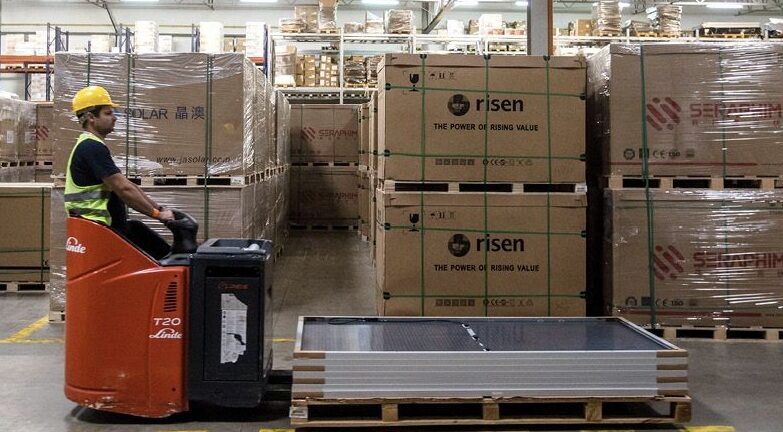Portugal deployed 1.77 GW of solar in 2024, setting a new record, according to the Directorate-General for Energy and Geology (DGEG). This exceeded the 1.3 GW added in 2023 and brought the country’s total capacity to 5.66 GW.
Utility-scale solar led the growth, rising 66% year-on-year. Residential and commercial solar also grew steadily, up 23.4% and 26.6%, respectively. More than 0.5 GW of the new capacity came from self-consumption units for businesses and homes.
Pedro Amaral Jorge, CEO of the Portuguese Association of Renewable Energy (APREN), told pv magazine that the 2024 growth stemmed from years of regulatory updates at both the European and national levels, along with “great resilience from private investors in betting in the sector, despite what are not always the best and most stable conditions.”
He added that the approval of the revised National Energy and Climate Plan (NPEC) 2030, which raised the solar target from 9 GW to 20.8 GW by the end of the decade, was another market driver in 2024.
Corporate power purchase agreements are also becoming an increasingly important tool to allow financing and bankability for solar projects in Portugal, Jorge noted, especially for the market segment covering small to medium-sized enterprises.
Looking ahead, Jorge said continued policy support for solar and other renewables, alongside further simplification of regulatory processes and investments in energy storage solutions, will help drive the market over the next two years.
“The market will also likely be influenced by the ongoing integration of renewable energy into the Iberian market and the increasing emphasis on long-term contracts to mitigate price volatility,” he added.
Jorge said that the creation of a one-stop shop for licensing would help centralize and simplify administrative processes, while ensuring greater transparency and due project processing and permitting for investors.
He also suggested enforcing a two-year cap on licensing procedures to prevent excessive delays and safeguard investments, as well as calling for “heavy investment” in grid expansion and modernization, which he advised is currently under discussion.
“It is essential to avoid frequent regulatory changes that generate instability and unpredictability for investors, which cause disruptions and cost increases on the financing of the projects,” Jorge added. “Political uncertainty, which was raised three weeks ago, also needs to be mitigated and can also stall critical projects. The interruption of legislative activity due to electoral processes can delay strategic projects and jeopardize the targets set by the NPEC.”
If Portugal matches the growth in solar installations seen in 2024 both this year and next, the country could surpass 9 GW of solar by the end of 2026, at which point it would become the country’s leading electricity generation technology.
This content is protected by copyright and may not be reused. If you want to cooperate with us and would like to reuse some of our content, please contact: editors@pv-magazine.com.




By submitting this form you agree to pv magazine using your data for the purposes of publishing your comment.
Your personal data will only be disclosed or otherwise transmitted to third parties for the purposes of spam filtering or if this is necessary for technical maintenance of the website. Any other transfer to third parties will not take place unless this is justified on the basis of applicable data protection regulations or if pv magazine is legally obliged to do so.
You may revoke this consent at any time with effect for the future, in which case your personal data will be deleted immediately. Otherwise, your data will be deleted if pv magazine has processed your request or the purpose of data storage is fulfilled.
Further information on data privacy can be found in our Data Protection Policy.